Global Footprint Network co-founder Dr. Mathis Wackernagel received this year’s Sustainability Award at the Nobel Sustainability Trust‘s 2024 Summit at the University of California, Berkeley. You can see more about the ceremony here.
He was recognized for his leadership in implementing sustainability measures. As co-originator of the Ecological Footprint concept, and co-founder of Global Footprint Network with its widely known annual Earth Overshoot Day campaign, this award honors his contribution to measuring and responding to global ecological overshoot. The Nobel Sustainability Trust has entrusted the selection process to the . Prof. Volker Sieber of the Technical University of Munich (TUM) selection committee provided the laudatio, summarizing the reason for selecting Mathis.
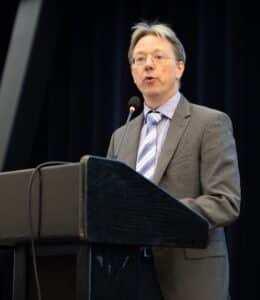 Prof. Volker Sieber said:
Prof. Volker Sieber said:
Dear members of the Nobel family, distinguished guests,
It is a tremendous privilege to stand before you today to celebrate the extraordinary achievements of Dr. Mathis Wackernagel, a visionary scholar, and dedicated advocate for our planet. Today, we recognize a man whose contributions to sustainability and resource management have changed the way we understand and handle our relationship with Earth. His life’s work, much like his character, is marked by an unwavering commitment to truth, understanding, and not less than humanity’s common future.
Born and raised in Switzerland, Mathis had early initiation and inspirations on and for his path to take. He was made aware of the limits of space to feed the people within the confined space of a country, Switzerland. While experiencing the first oil crisis in his childhood he realized the need and potential of renewable fuel, in him the hope for the fast implementation of these was raised and finally, he grew up surrounded by nature’s beauty, instilling in him a profound respect for our environment.
His academic journey began with obtaining a solid foundation in mechanical engineering at the ETH Zurich, where he learned the precision of engineering, the power of systems and the mathematical tools to work with them. These foundational studies set the stage for his pioneering insights and for the creation of a model that would ultimately reshape global discussions about sustainability.
 But Mathis’s journey to global impact began in earnest during his doctoral studies at the University of British Columbia. It was here, under the mentorship of Professor William Rees, that Mathis would co-develop a concept that transformed a theoretical discourse into a tangible framework: the Ecological Footprint.
But Mathis’s journey to global impact began in earnest during his doctoral studies at the University of British Columbia. It was here, under the mentorship of Professor William Rees, that Mathis would co-develop a concept that transformed a theoretical discourse into a tangible framework: the Ecological Footprint.
This concept, translates complex environmental impacts into a straightforward measure that anyone can understand: the amount of biologically productive land and sea area required to sustain the consumption habits and waste absorption needs of a person, a community, a country’s population or beyond. The Ecological Footprint is clear and relatable, simple yet profound—it illuminates our planet’s limits and shows how badly we’re pushing past them.
When Mathis and William Rees published their groundbreaking work, they did more than just add a new tool to the academic toolkit; they provided a way for all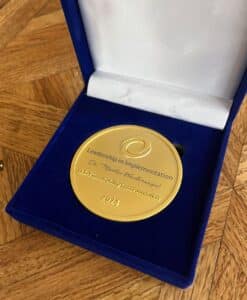 of us to see the world differently. For the first time, we had a measurement of humanity’s demand on nature, set against Earth’s capacity to regenerate. The numbers, stark as they were, spoke volumes: our planet’s resources were finite, and we were consuming them at an alarming rate. Through the concept of overshoot, Mathis demonstrated that humanity was already exceeding Earth’s sustainable boundaries—running, in essence, an ecological deficit. And in a world that constantly talks about climate change, we quickly lose the insight of the real problem. Mathis’ insight that overshoot is the overarching dynamic, and climate change just one of its symptoms points us to the right direction to go to the roots of today’s challenges and not just tamper with the symptoms.
of us to see the world differently. For the first time, we had a measurement of humanity’s demand on nature, set against Earth’s capacity to regenerate. The numbers, stark as they were, spoke volumes: our planet’s resources were finite, and we were consuming them at an alarming rate. Through the concept of overshoot, Mathis demonstrated that humanity was already exceeding Earth’s sustainable boundaries—running, in essence, an ecological deficit. And in a world that constantly talks about climate change, we quickly lose the insight of the real problem. Mathis’ insight that overshoot is the overarching dynamic, and climate change just one of its symptoms points us to the right direction to go to the roots of today’s challenges and not just tamper with the symptoms.
The concept of the Ecological Footprint resonated across disciplines and boundaries. Today, it is one of the most widely used sustainability metrics in the world. Governments, businesses, NGOs, and individuals have embraced it as a fundamental tool for understanding and managing our environmental impact. The Ecological Footprint has become a lens through which policymakers and citizens can assess sustainability, guiding policies and fostering accountability.
In 2003, Mathis took his commitment further by founding, together with Susan Burns, Global Footprint Network, a research organization dedicated to advancing sustainability metrics worldwide. Under his leadership, this organization has become a trusted authority, partnering with countries, cities, and institutions worldwide, helping them to evaluate and monitor their ecological footprints and providing the basis for policy-making. Through this work, he has given leaders the tools they need to create smarter, more sustainable strategies for economic growth. And that is implementation at its best.
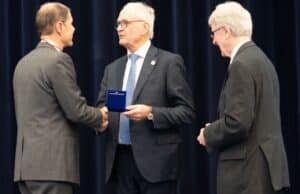 But what makes Mathis truly remarkable is not just his intellectual brilliance but his deep empathy for humanity and his strong believe that humanity can achieve the turning of the tide, in spite of political backlashes as we currently see not far from here. He recognizes that sustainability is not a goal we can achieve in isolation; it requires collaboration, humility, and a commitment to justice and fairness. In his work, Mathis emphasizes that sustainability is not simply about reducing consumption; it’s about creating a world where resources are used equitably, so future generations can enjoy a thriving planet.
But what makes Mathis truly remarkable is not just his intellectual brilliance but his deep empathy for humanity and his strong believe that humanity can achieve the turning of the tide, in spite of political backlashes as we currently see not far from here. He recognizes that sustainability is not a goal we can achieve in isolation; it requires collaboration, humility, and a commitment to justice and fairness. In his work, Mathis emphasizes that sustainability is not simply about reducing consumption; it’s about creating a world where resources are used equitably, so future generations can enjoy a thriving planet.
When he is comparing our overutilization of the planet’s resources to a Pyramid, a Ponzi scheme he points right at the heart that it is our responsibility to end it, to be at the bottom layer, and not the one of any coming generation, of whose resources we live …
So, Mathis’ mission is not merely academic or professional; it’s deeply ethical. He challenges us all to ask ourselves difficult questions about our impact on the world and to take responsibility for our collective future to achieve impact in this world.
And here Mathis continues to inspire us. He reminds us that our actions matter, that every choice we make has a ripple effect on our planet. His life’s work calls us to examine our behaviors, our policies, and our values. He has shown us that sustainability is not a burden but a path to a more equitable and resilient world.
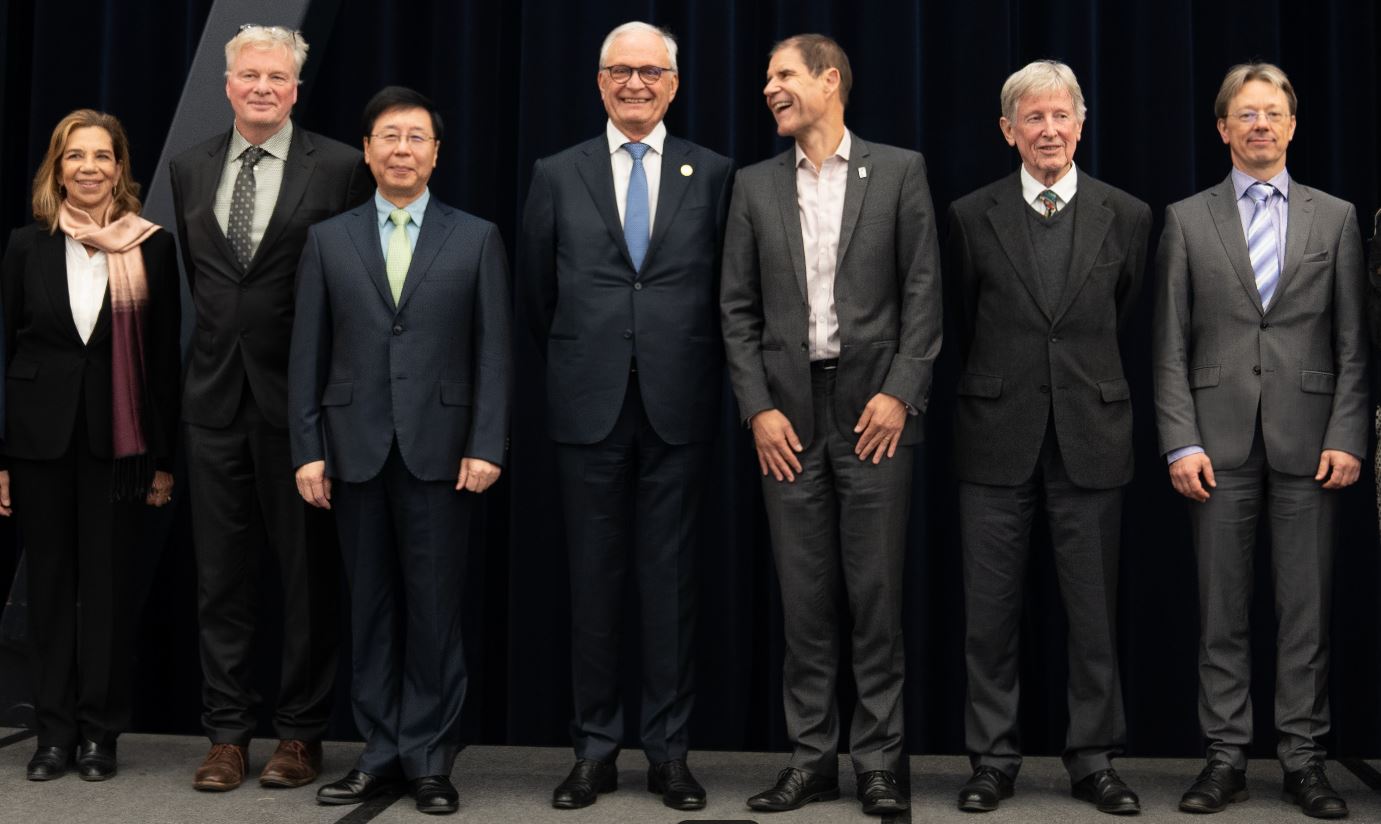 In a time when the environmental challenges we face can feel overwhelming, Mathis offers us hope and gives us motivation. His strong optimism and belief in our collective ability to effect positive change should be motivating us and help so it will become like a self-fulfilling prophecy.
In a time when the environmental challenges we face can feel overwhelming, Mathis offers us hope and gives us motivation. His strong optimism and belief in our collective ability to effect positive change should be motivating us and help so it will become like a self-fulfilling prophecy.
Today, we honor Mathis Wackernagel—not only for his groundbreaking ideas and tireless advocacy but also for his spirit, which has inspired countless others to join the journey toward sustainability. He is a true pioneer, a guardian of our fragile planet, and a beacon of hope for all of us.
So, Mathis, on behalf of everyone here today I would like to thank you. Thank you for your vision, for your courage, and for your tireless dedication. You remind us that our choices matter, that each decision we make leaves a footprint, and that together, we have the power to chart a sustainable path forward. That is true leadership.
Congratulation on the award for leadership and implementation of the Nobel Sustainability Trust.
The other two awards this year go to Prof. Klaus Butterbach-Bahl and Prof. Jiuhui Qu for their outstanding contributions in the fields of agriculture and water, respectively. The picture shows from left to right: Prof. Akissa Bahari, former Minister of Agriculture of Tunesia (giving a Laudatio); Prof. Klaus Butterbach-Bahl, Awardee; Prof. Jiuhui Qu, Awardee; Peter Nobel, Chair of the Nobel Sustainability Trust; Dr. Mathis Wackernagel, Awardee; Prof. Michael Molls, chair of the selection committee; Prof. Volker Sieber, member of selection committee.
 Prof. Klaus Butterbach-Bahl is a German biogeochemist and head of the Danish Pioneer Center for Landscape Research in Sustainable Agricultural Future Trends at Aarhus University. He also conducts research at the Institute of Meteorology and Climate Research, Atmospheric Environmental Research (IMK-IFU) at the Karlsruhe Institute of Technology. His research focuses on quantifying the environmental impacts of agriculture, particularly in relation to greenhouse gases.
Prof. Klaus Butterbach-Bahl is a German biogeochemist and head of the Danish Pioneer Center for Landscape Research in Sustainable Agricultural Future Trends at Aarhus University. He also conducts research at the Institute of Meteorology and Climate Research, Atmospheric Environmental Research (IMK-IFU) at the Karlsruhe Institute of Technology. His research focuses on quantifying the environmental impacts of agriculture, particularly in relation to greenhouse gases.
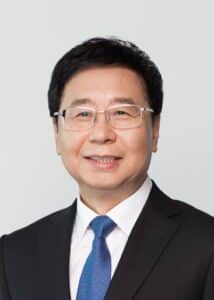 Prof. Jiuhui Qu is the former Director of the Research Center for Eco-Environmental Sciences at the Chinese Academy of Sciences and a Distinguished Professor at Tsinghua University, China’s leading university. He has developed a comprehensive technical system “from source to tap,” ensuring safe drinking water in both urban and rural areas while addressing water risks. This initiative has positively impacted more than 200 million people in China and around the world.
Prof. Jiuhui Qu is the former Director of the Research Center for Eco-Environmental Sciences at the Chinese Academy of Sciences and a Distinguished Professor at Tsinghua University, China’s leading university. He has developed a comprehensive technical system “from source to tap,” ensuring safe drinking water in both urban and rural areas while addressing water risks. This initiative has positively impacted more than 200 million people in China and around the world.
Dr. Mathis Wackernagel concluded: “It is an incredible honor to be recognized by the Nobel family. It is inspiring to see their new emphasis on the importance of sustainability, a dimension that, in 1885, had not yet been acknowledged as essential to humanity’s well-being. I am deeply moved by their decision to highlight overshoot—humanity’s overuse of our planet’s resources—as the core driver undermining both ecological and economic stability.” He added: “I am deeply touched by the Nobel family and the selection committee’s choice: to identify overshoot as the core driver undermining the biosphere’s ecological stability.
Apart from the three Awards, the Nobel Sustainability Trust bestowed two Sustainability Medals, one to the Mexican President Claudia Sheinbaum for her previous work on sustainable cities, particularly when being mayor of Mexico City. The other medal was awarded to former UN Secretary General Ban Ki-moon for his commitment to sustainable development, including chaperoning the Sustainable Development Goals, the UN’s agenda to 2030, into existence.
About the Awards
The Sustainability Awards recognizes distinguished individuals, organizations, or companies in different fields for their contribution to fostering, innovating, and implementing sustainable solutions for the well-being of our society, economy, and planet at present and in the future.
The TUM Institute for Advanced Study (TUM-IAS) oversees the two-stage competitive selection process. The selection committee consists of internationally renowned experts from academia and industry. The final award committee is composed of professors from TUM.
Here are further links:
(photo credit of event: Yiming Si; of Mathis Wackernagel’s picture: Nicholas Albrecht; of Klaus Butterbach-Bahl: Klaus Butterbach-Bahl; of Jiuhui Qu: CMG – China Media Group)



